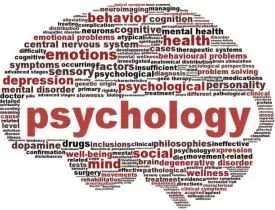Description
Course Name: Post Graduate Diploma in Psychology
Course Id: PGDP/Q1001.
Education Qualification: Graduate.
Duration: 370 Hrs.
How You will Get Diploma Certificate:
Step 1- Select your Course for Certification.
Step 2- Click on Enroll Now.
Step 3- Proceed to Enroll Now.
Step 4- Fill Your Billing Details and Proceed to Pay.
Step 5- You Will be Redirected to Payment Gateway, Pay Course and Exam Fee by Following Options.
Card(Debit/Credit), Wallet, Paytm, Net banking, UPI and Google pay.
Step 6- After Payment You will receive Study Material on your email id.
Step 7- After Completion of Course Study give Online Examination.
Step 8- After Online Examination you will get Diploma Certificate soft copy(Scan Copy) and Hard Copy(Original With Seal and Sign).
Step 9- After Certification you will receive Prospect Job Opportunities as per your Interest Area.
Online Examination Detail:
- Duration- 120 minutes.
- No. of Questions- 60. (Multiple Choice Questions).
- 10 Questions from each module, each carry 10 marks.
- Maximum Marks- 600, Passing Marks- 40%.
- There is no negative marking in this module.
| How Students will be Graded: | ||
| S.No. | Marks | Grade |
| 1 | 91-100 | O (Outstanding) |
| 2 | 81-90 | A (Excellent) |
| 3 | 71-80 | A (Very Good) |
| 4 | 61-70 | B (Good) |
| 5 | 51-60 | C (Average) |
| 6 | 41-50 | P (Pass) |
| 7 | 0-40 | F (Fail) |
Benefits of Certification:
- Government Authorized Assessment Agency Certification.
- Certificate Valid for Lifetime.
- Lifetime Verification of Certificate.
- Free Job Assistance as per your Interest Area.
Syllabus
Post Graduate Diploma In Psychology
Fundamentals of Psychology
Fundamentals of behavior, learning, conditioning, development, cognitive processes, perception, emotion, personality, and psychopathology are among the content areas studied, introduction psychology-definition, brief history of psychology- structuralism, behaviorism, gestalt psychology, psycho analysis, cognitive approach, consciousness states of mind, nature of consciousness, altered states of consciousness, perception & learning sensation and perception, perceptual organization, perceptual constancies, space perception. Learning –theories of learning-strategies for effective learning, memory & forgetting basic concepts, measuring memory, types of memory, mnemonics forgetting, reasons of forgetting, theories of forgetting.
Research Methodology & Statistics
Psychological testing, research traditions, experimental method introduction to experimental and quasi-experimental methods, Methods of data collection sampling; probability sampling methods and non probability sampling methods, non experimental methods, observation; surveys, focus group discussion, interviews, non experimental methods, psychological testing: standardization; reliability, validity and norms of a psychological test; applications experiment / psychological testing one experiment based on group data analysis one psychological test based on group data analysis.
Clinical Psychology
Psychosocial Foundation of Behavior and Psychopathology, Statistics and Research Methodology, Psychiatry, Biological Foundations of Behavior, Psychotherapy and Counseling, Behavioral Medicine, Mental health care – past and present; stigma and attitude towards mental illness; concept of mental health and illness; perspectives – psychodynamic, behavioral, Epidemiology: Epidemiological studies in Indian context; socio-cultural correlates of mental illness, mental health, psychological well-being and quality of life, Disability Policies and Acts.
Counselling Psychology
Introduction, meaning and goals, counselling as a profession: training, skills and ethics, the effective counsellor: personality and self of the counselor, counselling process and relationship, techniques of counselling, psychoanalytic techniques, humanistic approaches, behavioral techniques, cognitive techniques, : counselling applications, child counselling, family counselling, career counselling, crisis intervention: suicide, grief and sexual abuse, contemporary trends a) indian approaches: yoga and meditation, counselling and technology, expressive techniques: art, music, dance.
Counselling and Health Psychology
Individual, family and group counselling and psychotherapy, Crisis intervention, disaster and trauma management, Assessment techniques for the diagnosis of psychological disorders, Programs/workshops that educate and inform the public about mental health, school, family, relationship and workplace issues so that problems can be prevented before they start or reduced before they get worse, Clinical supervision, Test construction and validation, Research methodologies for scientific investigations, Philosophy of Mind, Philosophy of Psychiatry, Understand the significant aspects of coping and importance of health enhancing behaviour, Understand the significance of behavioral and psychological correlates of health and illness, Know the basics of health and illness from the Bio-psychosocial perspectives.
Psychology & its applications
Basic concepts – Definition of Psychology – Schools of Psychology – Behaviorist – Gestalt – Psychoanalysis – Humanistic, Scientific methods in Psychology – Application of Psychology – Psychology in Industry, community, family, education, health, self development – Human relations, Hereditary and environment – Experimental studies – Growth and maturation – Physiological basis of behaviour – The brain and nervous system – The sensory process – Some general characteristic of senses – Five senses – Perception: Organization – The role of learning in perception – Perception and attention – Perceptual process.







Reviews
There are no reviews yet.